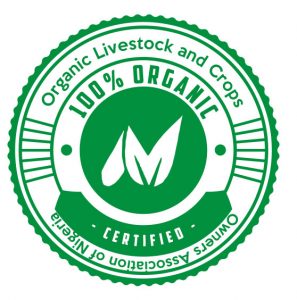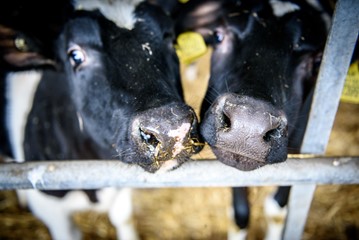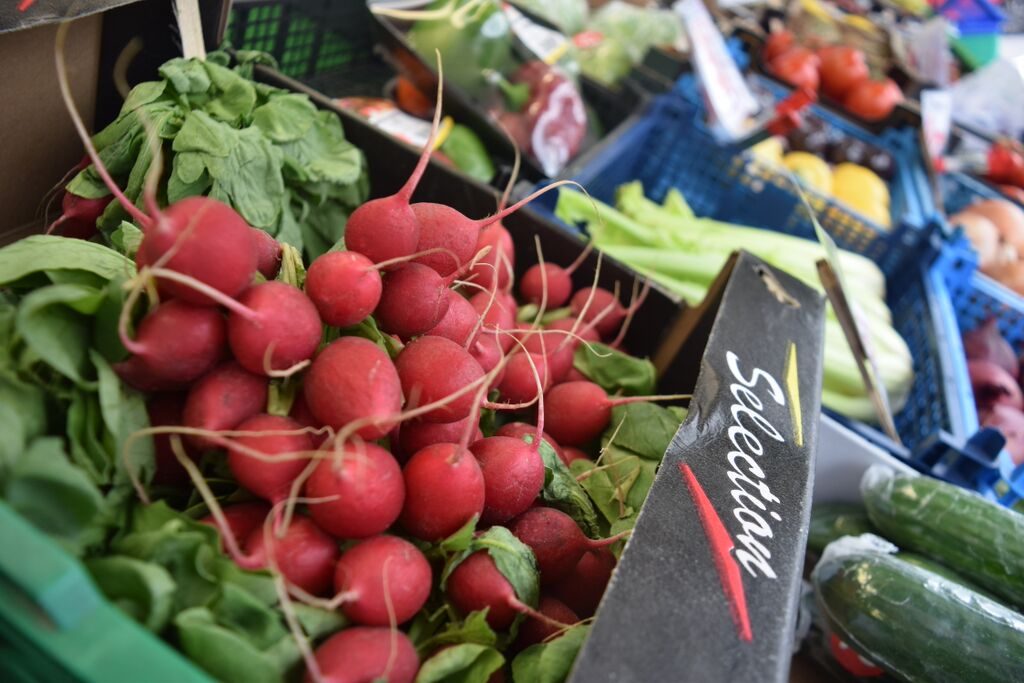What are Organic Standards?
Our standards are the most widely used, recognised and trusted organic standards in Nigeria and they have a strong international reputation.
Organic Livestock and Crops Owners Association of Nigeria Organic law ensures that all organic food and drink sold in shops meets strict standards – shown by the organic seal logo on the pack.
 The Organic Livestock and Crops Owners Association of Nigeria wants to ensure the highest possible standards of animal welfare, environmental and wildlife protection, so we have our own higher – or stricter – standards in key areas. The standards put our principles into practice and are at the heart of our work.
The Organic Livestock and Crops Owners Association of Nigeria wants to ensure the highest possible standards of animal welfare, environmental and wildlife protection, so we have our own higher – or stricter – standards in key areas. The standards put our principles into practice and are at the heart of our work.
Organic Livestock and Crops Owners Association of Nigeria Certification is our independent certification body. It carries out inspections and awards organic certification to farms and businesses that meet our standards. You will notice our symbol on many items of organic produce. Our certification business is Nigeria’s most experienced and licenses over 70% of the organic food on sale here.
How do we set standards?
We don’t just make them up! Organic Livestock and Crops Owners Association of Nigeria higher standards are set and overseen by external committees of experts.
Standards committees are made up of our members and certification licensees, researchers, advisors, other experts in their field and consumer representatives. Each standards committee has an independent chair who is responsible for ensuring the committee membership is balanced, reflecting the challenges of the sector and the priorities for standards development.
Standards committees provide the technical expertise and report to Standards Board, which oversees the strategic direction of our standards. Standards Board is made up of the chairs of all of our standards committees, a grower representative and three lay members.
The lay members represent the consumer perspective and help to ensure our standards reflect our principles but are also practical and achievable. Over one hundred volunteers are involved in setting our standards and we are very grateful for the work they do.
Anyone can propose a change to any of our standards. Proposals are considered by the relevant independent standards committee, and if they agree a change has merit they ask us to run a public consultation. Feedback is then considered and a final recommendation is made to Standards Board. Our Board of Trustees has final sign-off on all of our standards before publication.
How do Organic Standards Work?
Next time you visit a supermarket, take a look at the food labels. You’ll see plenty of claims about sustainability and welfare, but amongst them, the organic logo stands out as the only one which is underpinned by law.
Here you’ll find information about how organic food is certified, and why you can have confidence in the organic food you buy.
Organic food is certified – an independent guarantee
All organic food sold in Nigeria has to be certified by registered certification bodies. The Organic Livestock and Crops Owners Association of Nigeria has a wholly owned subsidiary, which is Nigeria’s largest organic certification body.
Certification offers you an independent, third-party assurance that the products you purchase have been produced to full organic standards, all the way from the field to your shopping basket.
Organic farmers and food processors abide by rules or standards. They are independently inspected and certified, which involves an inspector actually visiting their farms and factories to see what is going on.
The standards for organic food are laid down in European law. In some areas, we don’t feel these go far enough, so we require organic producers certified by the Organic Livestock and Crops Owners Association of Nigeria to meet even higher standards.
How certification works
For a food product to be called organic, every stage in the supply chain has to meet organic standards and be certified to prove it.
All organic farms and food companies are inspected at least once a year. They also need robust systems in place and paperwork that shows the standards have been met the rest of the time.
Once organic farms and food companies are certified as organic, they are issued with a certificate and a trading schedule which lists all the crops, livestock or products they are certified to produce organically. This certificate acts like a passport and is necessary to prove the organic status of the goods when they are sold on to other businesses.
When products are imported from countries outside of Nigeria, they not only have to be accompanied by an organic certificate, but they also need to have a Certificate of Import. This verifies that the product has been produced to organic standards equivalent to those in Nigeria and EU.
To ensure that organic certification is carried out consistently, even the inspectors are inspected every year! Checks are made by various accreditation bodies, and certification bodies are required to make regular reports of their activities.
This might sound like a complex process with a lot of paperwork, but it’s designed to ensure that organic food comes from verified sources and is food you can trust. The system needs to work whether you’re buying veg directly from a farmer or something like a product containing five spice, where ingredients may have come from lots of different smallholders on the other side of the world.



